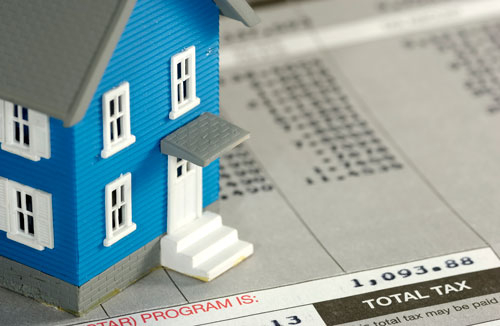Like-Kind Property
Aug 02, 2022 By Triston Martin
Like-kind property is a similar real estate asset, regardless of its quality or grade, and can be exchanged without tax liability. According to the Internal Revenue Code (IRC), a similar-kind property is any property held for investment, trade, or business purposes. This makes them a 1031 exchange. The exchange must involve both properties for investment or business purposes. Therefore, personal residences are not considered like-kind properties.
Understanding Like-Kind Properties
Businesses or individuals who own qualifying investments or business properties can exchange them in an exchange of like-kind. This exchange is called a tax-deferred 1031 exchange, which is allowed by Section 1031 of the U.S. tax code. It allows the seller to avoid capital gains. To be eligible for a Section 103 transfer, the like-kind property must conform to the Internal Revenue Service's (IRS) definition.
Tax deferral cannot be granted for like-kind properties not sold directly. They must be exchanged. The like-kind property must also be located in the United States to be eligible for tax deferral. A seller cannot use the profits from selling a hotel in the U.S. to purchase a hotel in Dubai. They can expect capital gains to be deferred. Like-kind property defines securities, bonds, partnerships, and other financial assets.
There are many different types of like-kind exchanges. The properties can be exchanged simultaneously in a simultaneous exchange. The deferred exchange allows the parties to complete the exchange within 180 days of the event. Investors who sell farmland have 45 days to find a replacement. The like-kind purchase must be made within 180 days of the farmland sales or by the due date of the tax return for that year. The IRS can grant extensions to taxes to permit the like-kind exchange before filing.

Many believe similar properties must be the same size or type to qualify. Different assets can be traded as long as they are eligible. Most of the time, the primary or principal residences used for personal purposes do not qualify for an exchange. You cannot exchange properties for investment or business purposes. Here are some examples of property exchanges of like kind:
- Multifamily property suitable for an industrial building
- Land vacant for a medical facility
- Apartment building to be used as a shopping center
- Hotel for retail property
- For a single-family rental, a condominium rental
Special Considerations
While the like-kind property exchange is still valid for real estate transactions, other changes to the tax code have eroded some of its definitions. The like-kind property exchange used to be used for assets that included everything, from cars and art to cryptocurrency holdings.
It can be complicated to exchange 1031 assets. Any missteps could result in very high costs. Hiring a full-service, reputable 1031 exchange company may be worth it. Due to their size, these companies can be much more affordable than hiring an attorney per hour. You may also gain confidence by choosing a firm with a track record of successfully handling these transactions.
The December 2017 Tax Cuts and Jobs Act (TCJA), which was passed, removed all real estate held for investment, trade, or business. It has been debated why real estate should be given such a favored tax status. At the same time, other investments, like machinery and equipment, must deal with capital gains on all sales regardless of whether they are reinvested. However, the exchange of like-kind property is still a great way to accumulate tax-deferred wealth in realty.

Are Rental Properties Considered Like-Kind In 1031 Exchanges?
Apartments, condo buildings, and rental homes are generally like-kind. They are therefore eligible for 1031 exchanges. These property types are similar for two reasons. They generate income via rental and lease agreements. They are not primarily owned for personal use. Different parts of the property can be considered distinct if the owner still lives at the rental property. The rental property is treated as a part of the same-kind property. The personal residence portion is not. The Taxpayer Relief Act Of 1997 may allow for capital gains tax relief.
It is not necessary for the property being replaced to be located in the same state or jurisdiction as the property being given up. However, national boundaries are important. It is possible to trade property inside the United States for other types of property in the same country. It is possible to trade property outside the United States for other property outside the United States.








